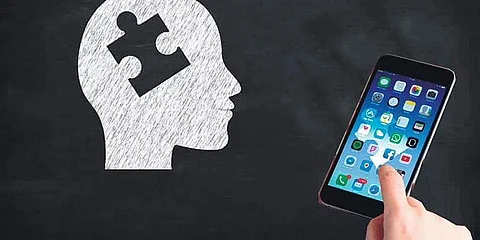

"That’s unusual,” Rita Mathur, an illustrator at a leading publication in Mumbai, thought to herself. “I am known for a photographic memory. I couldn’t believe it when, at first, I couldn’t recall what I was thinking just a minute ago. Then it happened again. After a point, the memory lapses became frequent,” says Mathur. The shift in her memory started long before she began noticing the changes. Her doctor knew right away what was happening—an overuse of technology that was not only affecting her memory, but was also making her anxious and jittery.
What is causing digital amnesia?
A large number of people between the ages of 40-50 are experiencing forgetfulness. This was not the case till a few decades back when remembering phone numbers and correcting your spellings was the norm. But today, technology is doing everything for us from dialling our numbers to completing our sentences.
“The brain will rust if you don’t use it,” according to Pune-based neurologist Dr Pradeep Kumar. “It’s one of those things that need to be continuously worked out to get more out of it. Sure, technology has made our lives easier. The convenience it offers is incredible. But it has come at a cost—languishing cognitive function that is making us dumb and sloppy,” he says. Besides forming addictive behaviours, an over-reliance on technology raises the risk of developing attention deficit/hyperactivity disorder. Neglect can interfere with sleep, brain development, and emotional and social intelligence, according
to a 2020 clinical neuroscience study.
GPS takes a wrong direction
“If you want to be on the ‘right’ road in life, turn off that GPS,” says Mumbai-based psychologist Nupur Singh. Long-term use of GPS can reduce grey matter density in the hippocampus, the area of the brain associated with memory and learning, essentially. And then follow a host of neurological disorders, sometimes irreversible. “The brain isn’t being worked adequately. It is failing in its ability to remain agile. What’s the biggest risk here? The brain’s capability to process and retain new information and comprehend visual cues, in addition to forming memories,” says Singh.
GPS is based on the stimulus-response method of navigation, the other being spatial navigation, wherein one depends on memory, repetition and recall. “We have stopped using the latter, weakening underlying neural connections. Research backs this. The hippocampus slows down with too much reliance on external prompts. It degenerates slowly at first but in some cases, it has led to serious conditions,” says Singh.
We need complexity to stay alert and aware. whereas the GPS has over-simplified an otherwise challenging task. Not only has it impacted our sense of direction, but also our observation. Then comes
a time when the GPS develops a technical glitch and stops working, leaving one high and dry, because our inner spatial navigation system that used to be robust once, has now rusted.
Smart tech can make you dumb
Every manner of information today is easily accessible on the smartphone with minimum input required. This ‘smartphonification’ has also become a leading cause of eye strain—usually caused by the HEV light emitted from the screen of a smartphone—in addition to head and neck cramps, mental fog, restlessness, feelings of isolation and a short attention span, especially among the youth. “Cases of insomnia have gone up between ages 25-40. School children come to me with complaints of sleep deprivation, heavy eyes and headaches. All are screen addicts,” says Dr Gurpreet Singh Dillon, an internal medicine specialist from Indore. Executive functions such as the power to recall, remember, learn, relearn, manage, organise, practise self-control, and find creative solutions to problems, has been outsourced to apps and devices. “Most alarming is the lack of empathy triggered by the injudicious use of technology,” says Singh.
Here’s what you can do
You get good at what you practice. Begin by decluttering your digital life. Delete apps you don’t frequently use. Stop forwarding messages or videos you see on social media mindlessly. Turn off notifications for a few days a month. “Cut down on the amount of information you consume in a day. You do not need to know everything happening in the world,” says Singh, adding, “Stay away from your phone for at least an hour every day. Replace internet scrolling with reading, playing a sport, an instrument, listening to a podcast,” advises Singh. And most importantly, give that GPS a break.
First signs of digital amnesia
✥ Getting agitated in the absence of technological devices such as the phone, PC, GPS etc.
✥ Forgetting simple everyday things, dates and appointments
✥ Having too many unfinished tasks because you cannot seem to organise your thoughts
✥ Eye fatigue ✥ Unable to recall even upon trying very hard
✥ Heavy head ✥ When most of your relationships are online and not offline.
Also read: The bane of modern technology
BMW’s iX Flow impresses car lovers with its colour-changing exterior and E Ink technology
Researchers develop technology that uses human body as a medium to power wearable devices
Brain health is as important as the health of any other part of the body, as we find out:
Limewash - for a breathable, healthy home